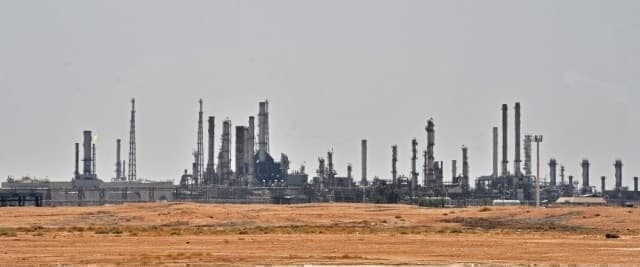The global commodity markets are undergoing a significant restructuring, driven by factors such as the energy transition, evolving geopolitical alliances, financial constraints, and heightened concerns about supply chains. Arab financial markets are now stepping into the forefront after years of gradual growth by leading national oil companies (NOCs) in commodity trading, exemplified by Aramco Trading and ADNOC Global Trading/Trading.
Arab financial institutions are increasingly exploring the potential role of the region in the energy-transition-related trading of mining, minerals, metals, and agricultural products. Saudi Arabia's Tadawul Group, for instance, has announced its acquisition of a 32.6% stake in the Dubai Mercantile Exchange (DME), making it the largest joint shareholder along with the Chicago Mercantile Exchange (CME) Group.
This strategic move by the Tadawul Group aims to enhance the regional presence in commodity markets, with plans to rebrand DME as the Gulf Mercantile Exchange. Sectors like energy, metals, and agricultural products will experience significant expansion as part of this initiative. The Tadawul Group's investment of approximately $28.5 million (SAR107m) positions it as a major player, with the option to take majority control of the exchange after four years.
Khalid Al Hussan, CEO of the Tadawul Group, emphasized the strategic importance of this investment, providing the group with access to global commodities trading. The move aligns with the group's long-term strategy to diversify revenues and seize new opportunities. The acquisition includes a mix of new and existing shares, with the proceeds from new shares dedicated to funding DME's growth.
Importantly, the equity acquisition maintains DME's operational structure, headquartered in the Dubai International Financial Centre and regulated by the Dubai Financial Services Authority. CME Group will continue to provide its trading technology and clearing services to the Gulf Mercantile Exchange. Related: Brent Backwardation Increases as Red Sea Hostilities Continue
Tadawul clarified that the move will not conflict with DME's existing Oman contract, emphasizing that Saudi Arabian crude oil contracts will not be traded, sold, bought, indexed, or delivered against DME's Oman contract. The establishment of the Gulf Mercantile Exchange aims to address the growing global and regional demand for energy, metals, and agricultural commodities.
Considering the broader context in the Arab Gulf region, this move aligns with Saudi Arabia's strategic push to become a major force in minerals, metals, and mining. This vision was highlighted during the recent Future Mining Forum 2024 in Riyadh, where the Kingdom updated its mining reserves to $2.5 trillion, signaling substantial untapped potential. The Public Investment Fund (PIF) and Saudi mining giant Maaden's joint venture to invest and acquire international commodity stakes further underscores this commitment.
In addition to minerals and metals, there is a clear focus on agriculture as part of the Gulf Mercantile Exchange's growth strategy. The Arab region's increasing dependence on agricultural imports, coupled with significant investments by Saudi Arabia, the UAE, and others in Africa, the USA, and Europe, underscores the aim to play a more influential role in future agricultural trade.
While Tadawul Group and others have indicated that no Saudi crude will be traded via the Gulf Mercantile Exchange, future changes cannot be ruled out. The current push is intricately linked to Saudi Arabia's future plans, particularly its renewable energy strategies, reflecting a broader shift toward a more active role in the commodity markets by Arab governments and financial institutions. As they increasingly invest in low-carbon or renewable energy projects, a restructuring of the commodity markets is expected to unfold, with more transformative options coming to the fore.
By Cyril Widdershoven for Oilprice.com
More Top Reads From Oilprice.com:
- US Oil, Gas Drillers Add 1 Rig Despite Freezing Temps
- EU Authority Drafts Guidelines for Banks to Manage ESG Risks
- Cape of Good Hope Becomes New Route for LNG Carriers


















